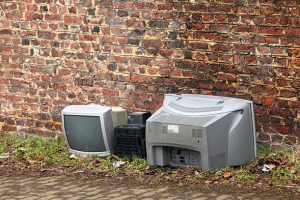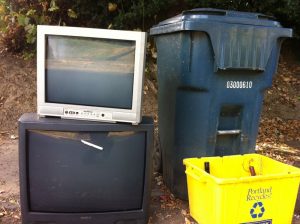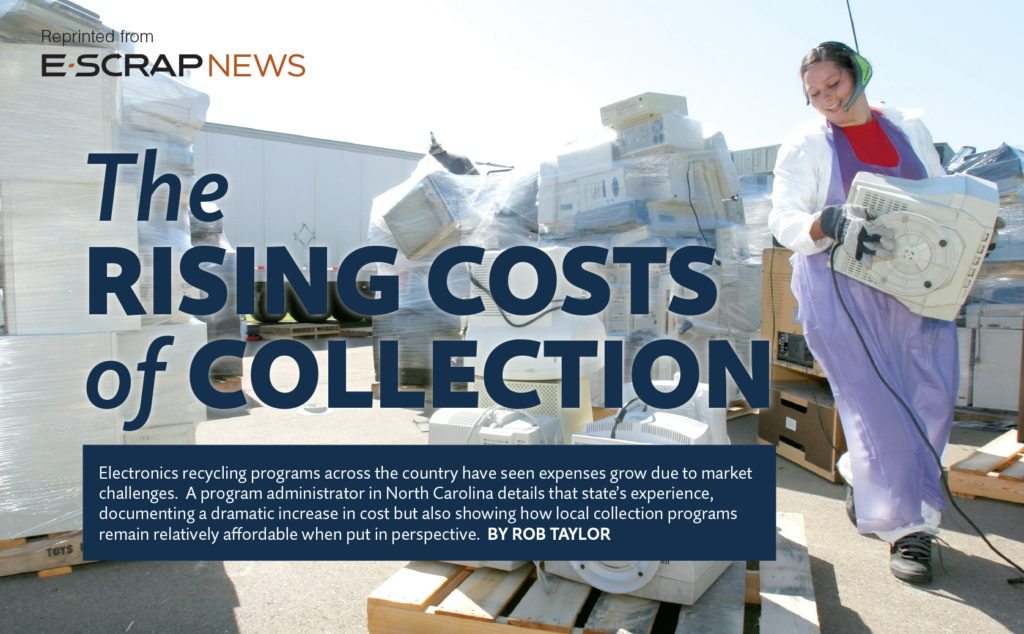
An appeals court has ruled against Vizio in a case over how Connecticut’s state program calculates the recycling fee it charges manufacturers.

An appeals court has ruled against Vizio in a case over how Connecticut’s state program calculates the recycling fee it charges manufacturers.
 Despite having a landfill ban in place, problems have plagued electronics recycling in Colorado for years, and stakeholders are working to find a solution.
Despite having a landfill ban in place, problems have plagued electronics recycling in Colorado for years, and stakeholders are working to find a solution.
This story originally appeared in the June 2016 issue of E-Scrap News.
Subscribe today for access to all print content.

 The current drive to recycle or repurpose CRT glass is leading the e-scrap industry into uncharted territory. CRT glass has lost its marketability and, with that, the e-scrap industry has lost its answer for the recycling of the CRTs.
The current drive to recycle or repurpose CRT glass is leading the e-scrap industry into uncharted territory. CRT glass has lost its marketability and, with that, the e-scrap industry has lost its answer for the recycling of the CRTs.

For much of the past decade, manufacturers have had a “piñata problem” whenever electronics recycling issues arose in state legislatures. Continue Reading

Electronics recycling in just a few years in New Jersey has gone from a highly successful and widespread program that processed worn-out televisions and computers to one where a growing number of e-scrap collection sites are being abandoned.
This story originally appeared in the September 2016 issue of E-Scrap News.
Subscribe today for access to all print content.

 Regulators in a Midwest state say the fundamental elements of its producer responsibility law remain sound, but industry-wide challenges are straining the program. In an annual report, Wisconsin state officials quantify these challenges and offer some potential fixes.
Regulators in a Midwest state say the fundamental elements of its producer responsibility law remain sound, but industry-wide challenges are straining the program. In an annual report, Wisconsin state officials quantify these challenges and offer some potential fixes.
 New York City is expanding a program in which households can make a reservation to have end-of-life devices picked up by city crews.
New York City is expanding a program in which households can make a reservation to have end-of-life devices picked up by city crews.

